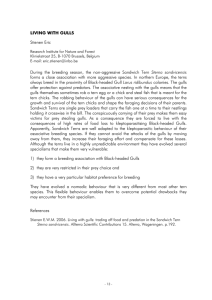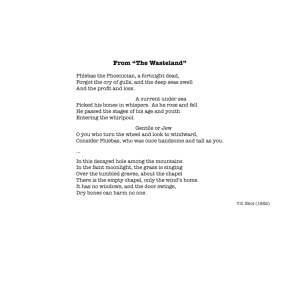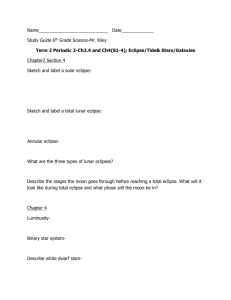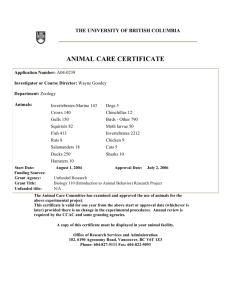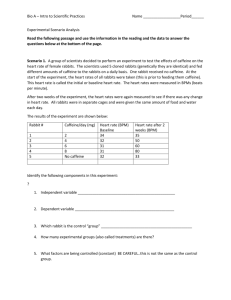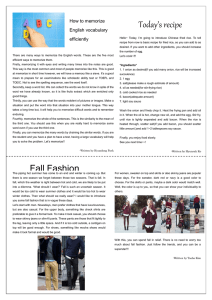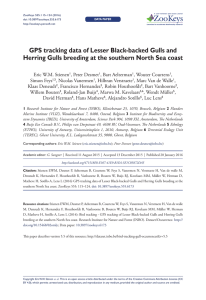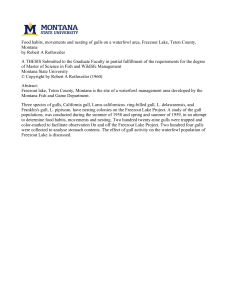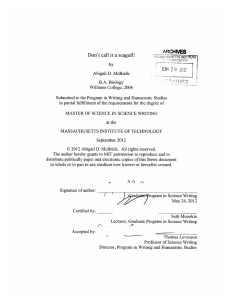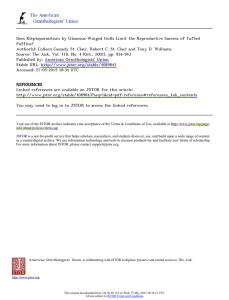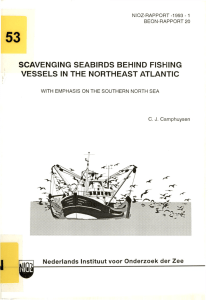Read This Work
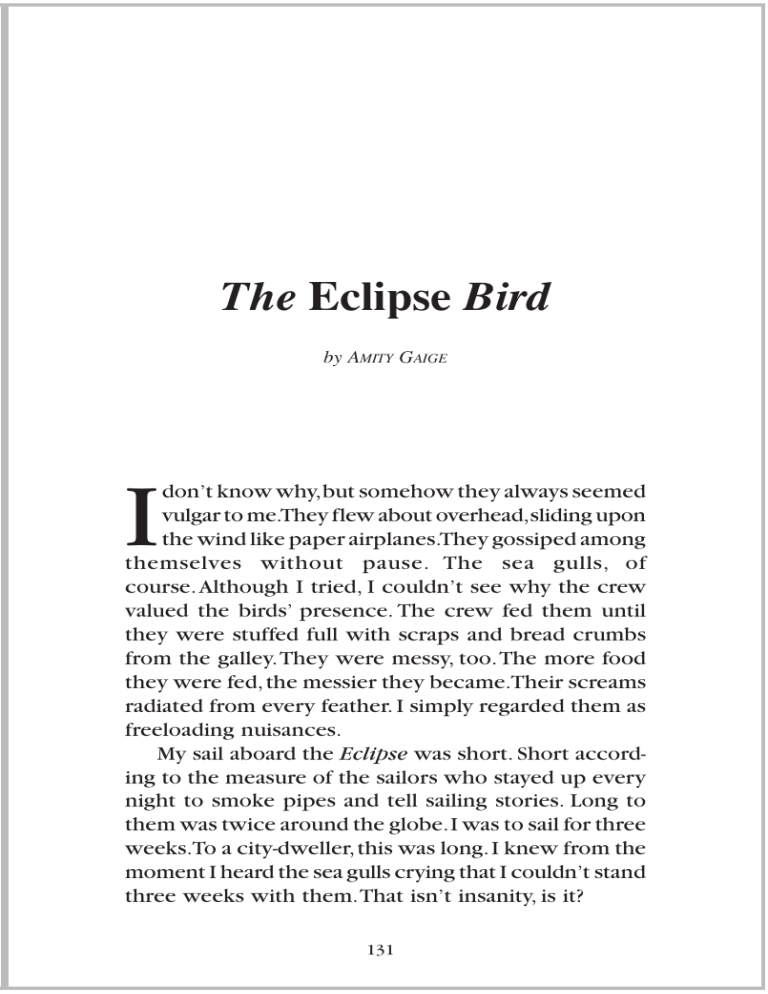
The
Eclipse
Bird by A
MITY
G
AIGE
I don’t know why,but somehow they always seemed vulgar to me.They flew about overhead,sliding upon the wind like paper airplanes.They gossiped among themselves without pause. The sea gulls, of course. Although I tried, I couldn’t see why the crew valued the birds’ presence. The crew fed them until they were stuffed full with scraps and bread crumbs from the galley.They were messy, too.The more food they were fed, the messier they became.Their screams radiated from every feather. I simply regarded them as freeloading nuisances.
My sail aboard the Eclipse was short. Short according to the measure of the sailors who stayed up every night to smoke pipes and tell sailing stories. Long to them was twice around the globe.I was to sail for three weeks.To a city-dweller, this was long. I knew from the moment I heard the sea gulls crying that I couldn’t stand three weeks with them.That isn’t insanity, is it?
131
132 O
UTSIDERS AND
O
THERS
Like almost every passenger aboard the 164-foot
Eclipse , I was sucked into the sailors’ stories.They took place on the lower deck after dusk began oozing onto the horizon.There in the cozy cabins one could hear the water splashing gently against the side of the ship.
I declare now that the storytellers must have used these below-water-level cabins for effect! The splashing and the gruff voices of the men drew me into a trance.
One story in particular resolved my curiosity about why the sea gulls were encouraged to follow the ship.
It was a superstition among sailors that the brash gulls brought luck on the journey.This upset me.These grotesque birds were driving me crazy because of a silly superstition.
Still, the sailors continued to feed the sea gulls. One old sailor in particular, a man named Simon, made certain that the sea gulls got fed. He had feathery silver hair, unblinking black eyes, and eyebrows that arched over his eyes like the wings of a bird. But he was mysteriously withdrawn and silent.He shuffled around deck every day and was quite obedient, not a harmful man at all.
The first day I talked to him was actually at night.
I was restless. Periodically, my head would roll around on my pillow, and my mouth would fall open while my tongue lolled out. I’d wake up with a very dry mouth.
So I got up, frustrated, and threw on my robe. Barefoot,
I pattered down the deck to the rail.The moon was a yellowish-white crescent, smiling down upon the sea, vibrating with the waves. Young, spoiled, and fiercely independent,I explored the passages that wound among the sleeping cabins. I rounded the corner of a cabin and stopped. The sea gulls were hovering above the
T
HE E CLIPSE
B
IRD
133 ship, as if waiting for something.They had fallen silent.
Still, I glared at them distastefully.
To my surprise, out came Simon from his cabin, hands full of food. He began throwing it out over the railing one piece at a time. Curiously, each gull seemed to dive down in an order,catching a tossed scrap squarely in its mouth and devouring it, then waiting for its turn to come again.
I frowned, but then walked casually up to Simon.
When he saw me, he looked embarrassed and stopped feeding the birds.The sea gulls resumed their positions high above the deck, embracing the air with white silver wings.
“Sorry for surprising you,” I said.
He nodded and kept his unblinking dark eyes on the birds.
After a moment of silence, he threw up a handful of bread crumbs, and the sea gulls dove for them in a disorganized mass.
He saw my scowl. “Why don’t you like them?” he asked me.
Raising my eyebrows and chewing on the inside of my cheek childishly, I answered,“They’re messy. Noisy, too.”
He looked hurt.
“Why do you feed them? Why do you lead them along all the time?”
He seemed at a loss for an answer. I laughed to myself, thinking he would not admit to a stupid superstition.A grown man like him! For shame!
Bashfully he stuttered,“They . . . they’re just . . . just beautiful to watch.”
I nodded my head and gave him an unbelieving
134 O
UTSIDERS AND
O
THERS stare.“Sure,” I said sarcastically.
He glanced at me, a frightened glance, and turned his face to the sea. Then he threw out the remaining scraps from a bowl by the rail, hurried into his cabin, and shut the door behind him. I laughed and said to myself,“I’d be ashamed, too, old man.”
The gulls resumed their screaming as I retired to my cabin.
In the morning, I was awakened much earlier than
I desired by the cry of the hungry scavengers. I also awoke with a scheme in my head. No longer would I stand for the sea gulls. I dressed and ran to the deck. I shooed them away with my boots and angry hollers.
They only scudded to the other side of the ship. I ran to that side and flapped my arms wildly.They flew crying once more to the other side. While dashing back across the boat,I tripped and fell,sliding along the deck on my stomach. A sea gull had taken a seat upon the rail. Looking down on me, it made what sounded like a laugh.I became so furious I grabbed a metal doorstop that lay loose on the deck and threw it at the bird. A thump upon the gull’s white breast, feathers fluttering in the wind,and the gull dropped lifeless into the ocean.
Laden with guilt, I dashed to the rail to see it swirl helplessly in the wake of the ship and then drift out of sight.The other sea gulls sensed my violent act and edged, screaming, away from the deck.
“That’s right!” I yelled. “Go away! Go home!!” My anger flooded back into me. I knocked Simon’s empty bowl into the water.“No food here! No more!”
For a few days, they kept their distance from the
T
HE E CLIPSE
B
IRD
135
Eclipse . I secretly stole all the food from their scrap bowl and shooed them away each morning and evening.
The calls of hunger became more distant, and I smiled at my success in ridding them from the sky.Then, one day, they were not there at all.They were not missed much on the ship, though some of the crew members wondered about it as they talked among themselves. I was happy.At last there was some peace.The soothing lullaby of the waves and the whistle of the wind were once again in my ears.
Suspicion about the gulls was overshadowed by something much more terrible. Simon was gone. It actually took two days for us to realize he had disappeared, withdrawn man that he was.
Many rumors floated around.Of course,the wildest were told by the old storytellers in the low deck cabins.“He’s turned into a fish,” they’d whisper.“I’ve seen it happen before.” Or,“He’s been murdered. Some-one has thrust him headfirst into the engine. Comes out like chopped hamburger. I’ve seen it happen before.”
No doubt the most plausible theory was that he’d fallen overboard, possibly in his sleep.
Everyone was anxious to get to port.We were only a couple of miles offshore now. It had been a most eventful trip.The passengers all leaned out toward land, squinting to see who could make out port first.A mother held the hand of a young boy who jumped up and down to see the land.“Wutsit look like, Mama?” He eagerly clawed at her dress, which billowed in the wind.
I was trying to absorb the last few minutes of salty sea air. My bags were sitting obediently at my feet, ready
136 O
UTSIDERS AND
O
THERS for the dash from the wharf to the train.A young lady about my age, squinting in the breeze, was the first to holler,“There’s the port! Yep, there it is.” Land rose tentatively above the horizon. A little later, as the Eclipse approached port, I heard the sweetness of a Spanish guitar and laughter in the narrow streets.
When we pulled up to the dock,the captain gasped.
I followed his wide eyes to a man standing on the dock.
“Simon,” I whispered.
There he stood, looking quite small and frail.When
the boat docked,everyone ran out and gathered around him. He was already in the process of explaining his disappearance when I reached him.
“. . . and then I,uh . . . woke up . . . I guess.”He spoke bashfully, the way he did while talking to me.
“Go on, go on, you woke up . . .” urged the captain.
“I found myself in the water . . . I must have been sleepwalking.” His eyes were no longer sharp and decisive.They were puffed and glazed and stared vacantly.
Then he looked at me and started, his terrified eyes like those of a child who has just lost his mother.
“I,ummm,stayed in the water not for too long,umm
. . . a schooner came by.The sailors pulled me in.” He looked down at the ground.The captain paused, then patted him enthusiastically on the back saying,“We’re glad you’re safe.”
Simon’s hair wasn’t silvery-white anymore, either.
It had a drab gray color to it. He looked sad. His gull wing eyebrows were flat and dark. He was a lost old man. I wondered if I was the only one who had noticed this change in Simon.I glanced around the group.
I wasn’t. One old storyteller with a frizzy beard stared wide-eyed at Simon. I could see a story brewing deep
T
HE E CLIPSE
B
IRD within him.
137
A BOUT THE A UTHOR
Amity Gaige lives in Reading, Pennsylvania, where she is a student at Northeast Jr. High School. She has won numerous awards for her writing. Her interests include ballet, singing, and acting.
